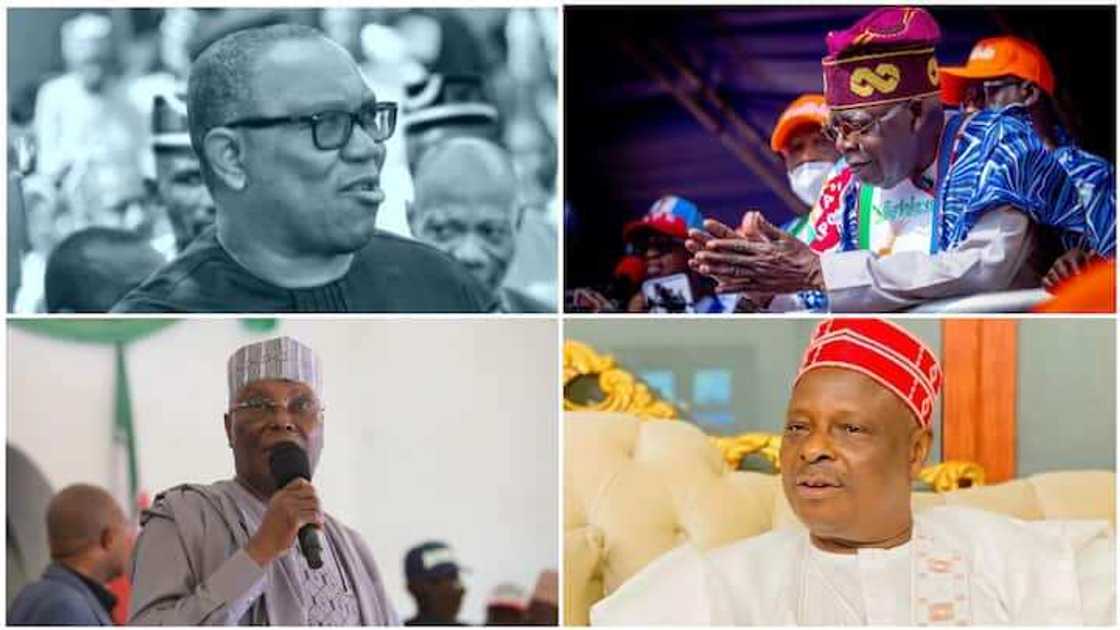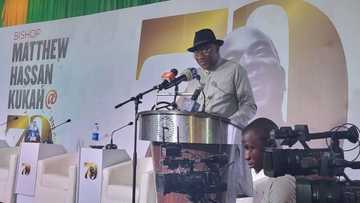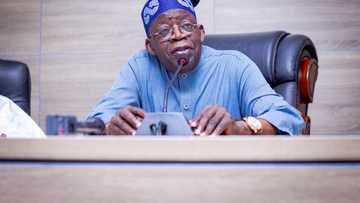2023: List of Most Followed Politicians Reveals Nigeria's Choice Presidential Candidate
Some Nigerian politicians have massive followership on social media and this accounts for the number of those who share their political ideology and support aspirations nursed by them.
PAY ATTENTION: Click “See First” under the “Following” tab to see Legit.ng News on your Facebook News Feed!
StatiSense, an online platform that publishes statistical data on various sectors of Nigeria and key issues affecting the polity, has released a list of the most followed politicians in the country.

Source: Facebook
The list reflects the followership of politicians, including 2023 presidential candidates for the month of August.
Below is the list:
- Atiku Abubakar - 4.4 million followers
- President Muhammadu Buhari - 4.2 million followers
- Vice President Yemi Osinbajo - 3.9 million followers
- Dino Melaye - 3.4 million followers
- Bukola Saraki - 2.9 million followers
- Shehu Sani - 2.7 million followers
- Governor Nasir El-Rufai - 2.1 million followers
- Goodluck Ebele Jonathan - 2 million followers
- Peter Obi - 1.9 million followers
- Ben Murray Bruce - 1.8 million followers
- Governor Babajide Sanwo-Olu - 1.7 million followers
- Garba Shehu - 1.4 million followers
PAY ATTENTION: Subscribe to Digital Talk newsletter to receive must-know business stories and succeed BIG!
Surprisingly, presidential candidates like Asiwaju Bola Ahmed Tinubu of the All Progressives Congress (APC) and Rabiu Kwankwaso, the flagbearer of the New Nigeria Peoples Party (NNPP) are not on the list.
2023: Tinubu, Atiku, Obi, Kwankwaso, others get tough conditions for victory
Meanwhile, to win the 2023 presidential election, candidates across all political parties had been given a list of conditions to meet.
The conditions were given by civil society organisations comprising Accountability Lab Nigeria, Connected Development (CODE), SERAP, BudgIT, CJID, PLSI, Yiaga Africa, and EIE.
The groups are calling the candidates seeking to occupy President Muhammadu Buhari's seat in 2023 to declare their assets before the general elections begin.
The CSOs are specifically making this demand because, as they said, the level of compliance is unknown as data on asset declaration of office holders is not available to the public.
“The monetization of politics was the main headline during the political parties’ primaries and has become a pointer to how vote buying and selling will play a disruptive role in the 2023 election.
“Vote-buying has become a widespread practice, where democracy has struggled to be fully consolidated due to Nigeria’s entrenched corrupt political class, trapping citizens in self-sabotaging, subservient relationships with political leaders.”
Source: Legit.ng




